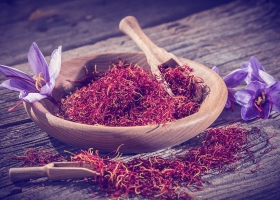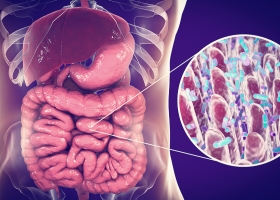Dysmenorrhoea is the most common gynaecological condition in women, with prevalence ranging up to 91% in women of reproductive age. Complementary treatments such as ginger and zinc should be considered as efficacious as part of any treatment protocol for dysmenorrhoea.
The use of saffron as a medicinal plant dates back to ancient times, with its reported therapeutic applications ranging from complaints of the eye, skin, respiratory, digestive, and genitourinary tracts, in mood disorders and as a general tonic.
Curcumin has been thoroughly studied for its anti-inflammatory benefits that permeate through multiple systems of the body, including the brain. And, while anti-inflammatory activity is important in combatting neuroinflammation, curcumin also comprises antioxidant, anti-amyloid and possible anti-tau properties that work synergistically to further protect the brain from neurodegeneration, particularly in older adults
What is the research telling us about the most effective herbal medicines for neuroprotection?
It is becoming increasingly clear that the physiological effects of stress can include a negative impact on fertility in both women and men. Evidence for adaptogens is something to consider.
The intestinal microbiome is a complex signalling hub that incorporates environmental factors, such as diet, stress and xenobiotics, with genetics and immune signals to influence host immunity and response to infection.[1-3] Within the last decade, we have begun to understand the importance of this interdependent bilateral interaction between the host and its microbiota and how its mutually beneficial balance is crucial in host defence and immune health.[1]
Healthy hormone balance and general fitness and wellbeing are essential to male health, and underpin a healthy reproductive function as well as fertility, stamina, vitality, optimal libido and a healthy sexual function.
A 2014 study published in The Journal of Epidemiology and Community Health concluded that middle-aged men are more likely to experience premature death due to worrying and frequent arguing with partners, relatives, friends and neighbours. The study, which sampled nearly 10,000 men and women, showed that men who experienced frequent stressful social situations such as worries and demands from their spouses and children had a 50-100% increased mortality risk.[1]








